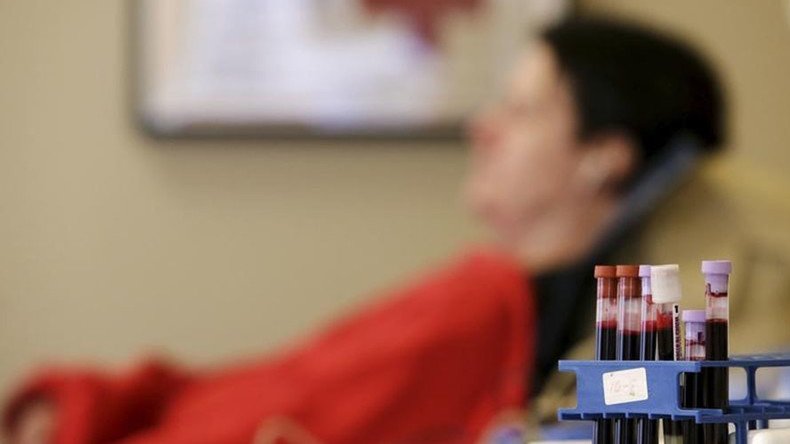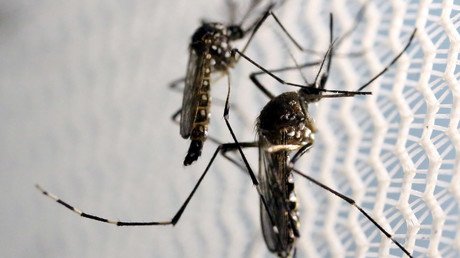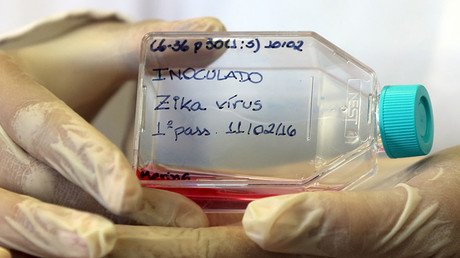FDA extends Zika testing to all blood donations in US

All blood donations in the US and its territories must be tested for the Zika virus, the US Food and Drug Administration has announced.
The directive is a revision of a February guidance, which called for Zika testing of Whole Blood and blood components donated in areas shown to have active Zika transmission. The new guidance demands that all individual units of Whole Blood and blood components donated across the United States and its territories be screened using FDA-approved methods. Additionally, an FDA-sanctioned pathogen-reduction device can be used for plasma and some platelet donation.
"As new scientific and epidemiological information regarding Zika virus has become available, it's clear that additional precautionary measures are necessary," Luciana Borio, the FDA's acting chief scientist, said in a statement.
Moms-to-be: Protect your pregnancy from #Zika! Check out our prevention tips from @CDCgovhttps://t.co/W3CXCaVZvk
— U.S. FDA (@US_FDA) August 25, 2016
Blood testing will not expand all at once, as the FDA has advised that donation organizations in 11 states — Alabama, Arizona, California, Georgia, Hawaii, Louisiana, Mississippi, New Mexico, New York, South Carolina and Texas — begin testing for Zika in the next four weeks. These states include areas where Zika is actively spreading by various means, including mosquitoes and sexual transmission.
Donations in all states will be required to receive Zika testing within 12 weeks, according to the FDA.
Zika can spread through infected Aedes species mosquitoes, sexual contact, blood transfusions, laboratory exposure, or from a mother to her fetus. The virus is particularly dangerous to pregnant women and future mothers as it may cause microcephaly, a neurological birth defect that can cause a newborn's head and brain to turn out smaller than normal, among other developmental issues.
Four out of five people with Zika do not develop symptoms, the FDA says, which can include fever, joint pain, maculopapular rash, and conjunctivitis.
There has been a total of 2,517 documented cases of Zika in US states and the District of Columbia, according to the US Centers for Disease Control and Prevention. Only 29 of those cases pertain to acquisition via mosquitoes, with 2,487 associated with travel and 22 with sexual transmission.
US territories have reported more than 9,000 cases, with nearly all acquired via local transmission. The CDC says that with US territories, local transmission of Zika is impossible to parse between mosquito-borne infection or sexual contact.
In December 2015, the first local, non-travel related transmission of Zika was reported in Puerto Rico, then soon after in American Samoa and the US Virgin Islands. In July, the first local or non-travel related transmissions in the continental US were discovered in Miami-Dade County, Florida.
Testing of blood donations is already occurring in Florida and Puerto Rico, as well as other areas where Zika has been acquired via mosquitoes.
Zika has not been transferred via blood transfusion in the US, according to the CDC. There has been once case of laboratory acquisition.
"There is still much uncertainty regarding the nature and extent of Zika virus transmission," Peter Marks, director of the FDA's Center for Biologics Evaluation and Research, said Friday. "At this time, the recommendation for testing the entire blood supply will help ensure that safe blood is available for all individuals who might need transfusion."
The federal government is currently scrambling to fund Zika-prevention initiatives, as lawmakers have refused to compromise on the issue. In February, President Barack Obama requested $1.9 billion for fighting the virus, but the Republican-led Congress rejected such an amount without further details of how exactly the funding would be spent.
In June, the GOP’s bill allocating $1.1 billion to fight Zika was blocked by Democrats because of certain caveats like restricted funding of reproductive health outlets and weakened standards for pesticide use near water sources. Congressional action in the coming months will be hampered given lawmakers are now busy campaigning amid the homestretch prior to the November election.

















